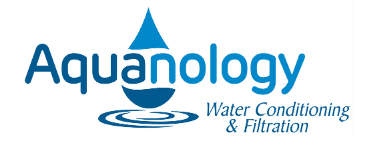When buying or selling a property that is supplied by a private well, it is often required that a certified water test be performed to confirm whether or not the water supply is potable. The disadvantage here is most required tests only cover the basics, such as bacteria, lead, and nitrates.
Some of the other necessary tests are overlooked. These are the ones that are centered around water taste, usability, and its effect on the appliances and fixtures. What about the levels of iron, water hardness, manganese, hydrogen sulfide, sulfates, TDS, or pH? As you can see, testing for the basic requirements is only scratching the surface of possible contaminant to test for.
If your property is on a public water system, rarely is a water test required by you, since the public water operators should be performing all the testing required by the EPA. Even so, there are a few things that may be a good idea to test for.
Hard water is often present in public water, to a greater or lesser degree. Depending on the level will depend on how it will affect your appliances, fixtures, etc. Chlorine can be a contributor to dry skin and can leave an unpleasant taste. Lead could be present in your water from the plumbing and/or fixtures in the building. Fluoride, as well as trihalomethanes (THMs) and Haloacetic acids (HAAs )– both disinfection by-products, are emerging contaminants often found in municipal water related to health concerns.
Cost depends on the scenario and the amount of analyses required. If you are interested in a basic onsite water test and consultation, we offer these at no cost for qualifying customers or prospective customers. However, if more in depth testing is desired which requires a lab test, charges will often apply.
The free initial water test we offer usually includes hardness, iron, pH, chlorine, turbidity, and TDS. Additional analytes may be tested for free, depending on the scenario. Also included is a no-cost consultation and quote to improve the water quality, if improvements are necessary or desired.
Certified testing (also known as compliance testing) is sampling done in a state certified laboratory, and is usually required for public water systems, or when a test is required for a real estate transaction. Certified and informational testing, in some cases, may share the same analyzing method. But because certification is needed and additional paperwork is required, certified tests are usually more expensive than informational only tests.
Are there providers from which you can obtain kits to do your own testing for your home, farm, or business? Yes. See our best third party water test and analysis recommendations, below:
Your local health department.
If interested in basic sampling, such as for bacteria, etc., start local. Health department staff should be able to point you to a local laboratory to get the basics done for you, even certified tests.
National Testing Laboratories, LTD
National Testing Laboratories, LTD is known for their analyzing accuracy and has a number water testing packages available, including for both city and well water. They come in a handy kit ready to ship to the lab. Check them out at watercheck.com.
MyTapScore (powered by Simple Lab)
MyTapScore is an online platform that pairs with laboratories all over the nation. They provide a host of sampling packages, with free shipping included. The TapScore site also has a great amount of information on the different contaminants tested, as well as possible treatment methods. Visit their website https://mytapscore.com/ for more information.
Helpful hint: When doing your own Water testing, be sure to follow all directions for the sample correctly. For example, when taking a bacteria test, utmost care should be taken to avoid contamination of the sample from external sources, such as your hands.
